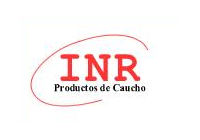Navigant Research Report Shows Science-Based Targets Offer Corporations Direction for Sustainability Performance
A new report from Navigant Research examines the current state of emissions reduction target setting and lessons learned from corporate activities on this sustainability topic.
As corporations around the world take action against climate change, the Science Based Targets initiative (SBTi) independently assesses and validates their emissions reduction targets against the latest climate science. This initiative strives to have companies set transparent targets that are grounded in relevance for sectors and companies, moving toward accountability throughout value chains, upstream and downstream. Click to tweet: According to a new report from @NavigantRSRCH, science-based targets (SBTs) offer corporations direction for sustainability performance.
“In the mid-1990s, many companies decided to take action on global climate change and began by setting and meeting emissions reduction targets,” says Casey Talon, research director with Navigant Research. “They were spurred by several motivators, including NGO initiatives driving commitments, business pressures tied to cost savings and regulation, investor demands for sustainability solutions, and a reduction in fossil fuel reliance. These catalysts are still relevant in a new era of SBT setting.”
For companies interested in developing and delivering on SBTs, Navigant Research recommends addressing energy savings as a must have, emphasizing the value of a portfolio of SBT strategies, and finding partnerships from new directions. In addition, stakeholders should be mindful of the enterprise management system logic and acknowledge the changing velocity of ambition.
The report, How Science-Based Targets Offer Direction for Sustainability Performance, takes stock of the current domain for emissions reduction target setting and the lessons to draw from corporate activities on this sustainability topic. The study discusses how targets can compel companies to refocus on energy savings. Navigant Research also provides recommendations for how sustainability specialists can take advantage of trends and optimize energy savings as a winning measure for the low carbon transition. An Executive Summary of the report is available for free download on the Navigant Research website.
About Navigant Research
Navigant Research, the dedicated research arm of Navigant, provides market research and benchmarking services for rapidly changing and often highly regulated industries. In the energy sector, Navigant Research focuses on in-depth analysis and reporting about global clean technology markets. The team’s research methodology combines supply-side industry analysis, end-user primary research and demand assessment, and deep examination of technology trends to provide a comprehensive view of clean, intelligent, mobile, and distributed energy. Additional information about Navigant Research can be found at www.navigantresearch.com.
About Navigant
Navigant Consulting, Inc. is a specialized, global professional services firm that helps clients take control of their future. Navigant’s professionals apply deep industry knowledge, substantive technical expertise, and an enterprising approach to help clients build, manage and/or protect their business interests. With a focus on markets and clients facing transformational change and significant regulatory or legal pressures, the Firm primarily serves clients in the healthcare, energy and financial services industries. Across a range of advisory, consulting, outsourcing, and technology/analytics services, Navigant’s practitioners bring sharp insight that pinpoints opportunities and delivers powerful results. More information about Navigant can be found at navigant.com.
* The information contained in this press release concerning the report, How Science-Based Targets Offer Direction for Sustainability Performance, is a summary and reflects Navigant Research’s current expectations based on market data and trend analysis. Market predictions and expectations are inherently uncertain and actual results may differ materially from those contained in this press release or the report. Please refer to the full report for a complete understanding of the assumptions underlying the report’s conclusions and the methodologies used to create the report. Neither Navigant Research nor Navigant undertakes any obligation to update any of the information contained in this press release or the report.
View source version on businesswire.com: https://www.businesswire.com/news/home/20190107005063/en/




